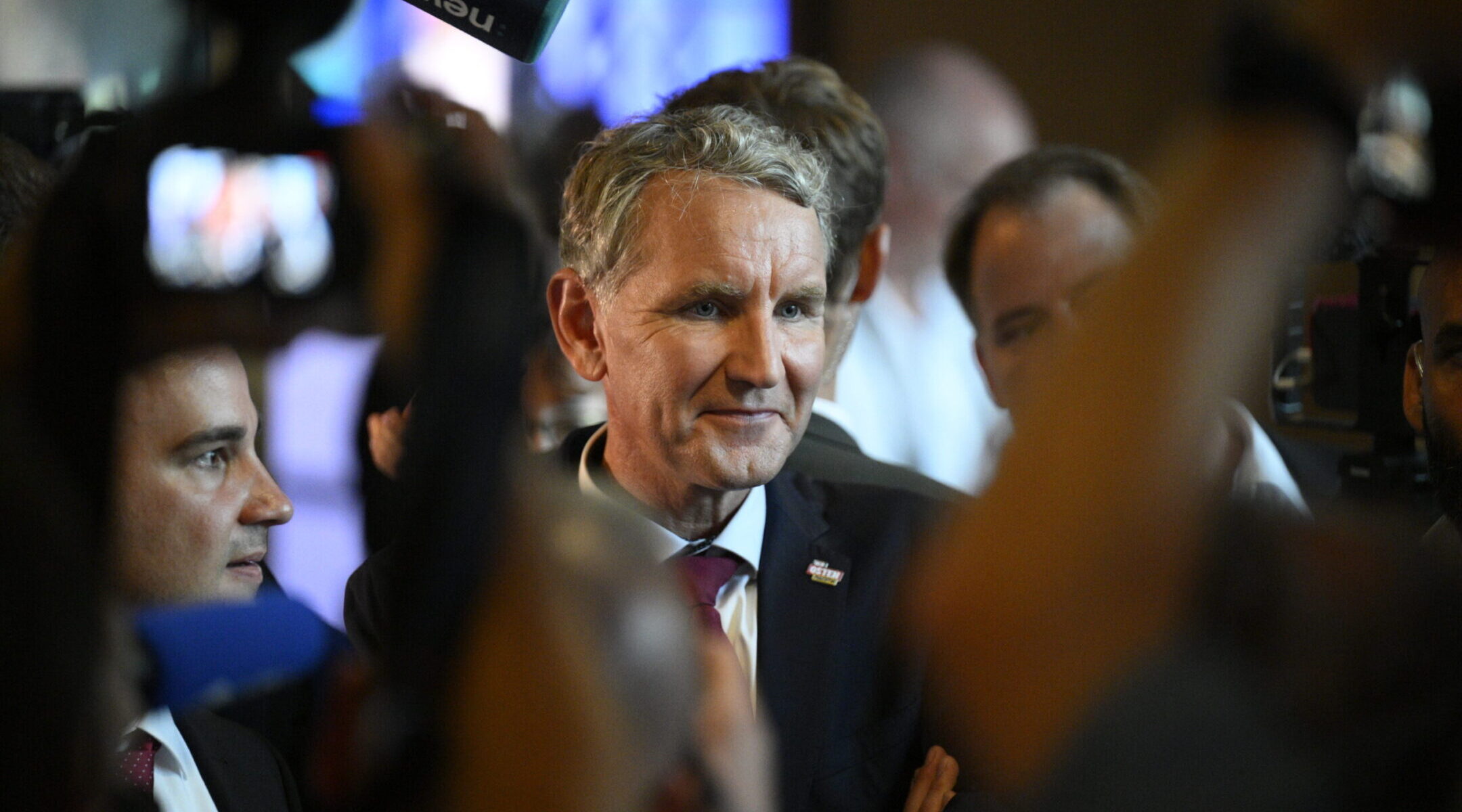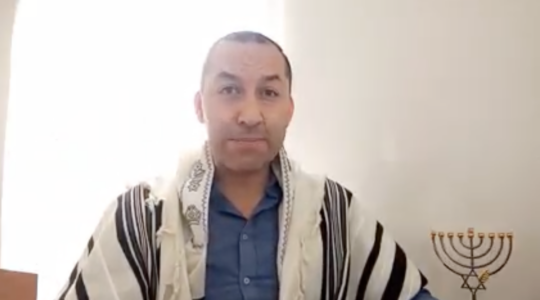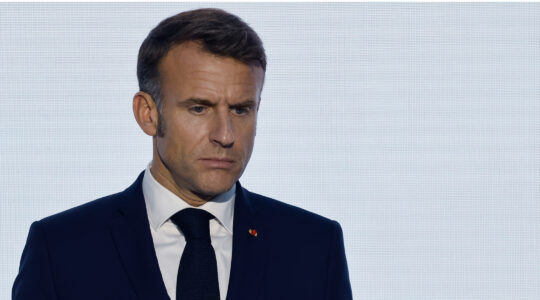BERLIN — For the first time since the Nazi era, a far-right party in Germany has won the largest piece of the electoral pie in a state election.
Mainstream politicians and Jewish leaders are expressing alarm following Sunday’s elections, in which the anti-immigrant, Eurosceptic and pro-Russia Alternative for Germany party came out on top in the state of Thuringia, with 32.8% of the vote.
The 11-year-old party also earned second place to the traditional conservative Christian Democratic Union party in the neighboring state of Saxony. Both states are in the former East Germany.
“No one can brush this off as a ‘protest’ vote anymore,” Charlotte Knobloch, head of the Jewish community of Munich and Upper Bavaria, said in a statement late Sunday.
“Exactly 85 years after the start of World War II, Germany is in danger of becoming a different country again: more unstable, colder and poorer, less secure, less worth living in,” said Knobloch, a former head of the Central Council of Jews in Germany who herself survived the Holocaust in hiding.
The election came just over a week since a Syrian refugee was arrested after a deadly stabbing spree at a festival in the city of Solingen, and only days after Germany resumed its program of deporting refugees convicted of crimes. The knife attack, in which three people were killed, reignited popular anxiety about social unrest connected with the more than 1 million refugees admitted to Germany since 2015.
AfD stresses isolationism, takes an anti-EU and pro-Russian stance, and is accused of fomenting anti-Muslim sentiment. Some of its most extreme representatives have also belittled the Holocaust, saying that Germany has paid enough penance for the sins of an older generation.
Mass protests against the party took place earlier this year following revelations that the party had held a secret meeting at a lakeside villa to discuss plans to deport foreigners, including those who had become German citizens. Prominent neo-Nazis attended the meeting, according to the news organization that broke the story, inducing painful echoes of the gathering of Nazi leaders at nearby Wannsee in 1942 to devise a plan to deport and then murder Jews.
But while support for the AfD dipped in polls at the time, it soon rebounded and then accelerated. Now, it has achieved breakthrough results in state elections and raised concerns for next year’s national elections.
The party — whose Thuringen leader, Bjoern Hoecke, has been convicted twice of using a Nazi slogan to boost his party — is unlikely to form a ruling coalition in either state, since it is shunned by other parties. Still, it will have additional seats in the state legislatures and will have the numbers, particularly in Thuringia, to interfere with some governing decisions.
A far-left party, Sahra Wagenknecht Alliance or BSW, also produced notable results, coming in third in Thuringia with 15.8% of the vote. Last month, the current head of the Central Council of Jews in Germany, Josef Schuster, warned that the party, which has accused Israel of genocide in its war in Gaza, was “fueling hatred of Israel in Germany.”
The new election results bode ill for Germany’s future, Schuster said on Sunday.
“Can we recover from this hit?” Schuster wrote in a column in the Bild newspaper. “Our free society must not fall, especially in the face of Islamist terror. Unvarnished truths — honesty and sincerity — are needed, not populist pseudo-answers from radical parties.”
In Thuringia, the mainstream Social Democratic Party barely squeaked in, with 6.1%. Several parties, including the Greens and Free Democratic Party, received so few votes that they will not have any seats at all.
BSW also came in third in Saxony, with 11.8% of the vote, following the AfD with 30.6% and the CDU with a narrow win at 31.9%.
Younger voters overwhelmingly favored the AfD in this week’s elections, according to an NTV-Infratest exit poll.
“The survivors are asking themselves: ‘Didn’t we do enough to teach, to tell, to show?” Christoph Heubner of the International Auschwitz Committee, told the Guardian.
Some Jewish leaders say German politicians would do well to address the concerns apparently expressed by voters this weekend.
“The election results in the German federal states of Thuringia and Saxony are a clear wake-up call to the centrist parties in Germany to listen to the real concerns and fears of the people,” Rabbi Pinchas Goldschmidt, president of the Conference of European Rabbis, said in a statement. “When half the population votes for parties on the extreme fringes, their problems must be addressed openly and honestly.”
Sunday was an “insanely sad” election day, German Jewish journalist Samira Lazarovic wrote on Facebook. She said her 96-year-old father compared the outcome to the opening salvo of World War II, exactly 85 years ago.
Lazarovic said it was is urgent to reach out to younger voters. “It’s not that we know better than they; but we should shape the future together.”
Obviously, it wasn’t enough to take to the streets and protest against the far right, she added: “Populists all over the world have one thing in common. They mean exactly what they say and do everything they can to turn their words to deeds.”
JTA has documented Jewish history in real-time for over a century. Keep our journalism strong by joining us in supporting independent, award-winning reporting.






